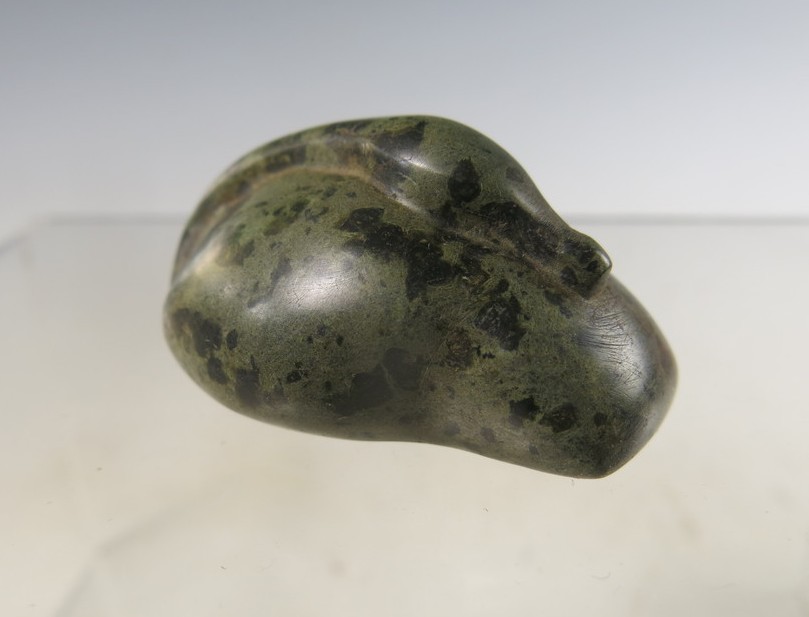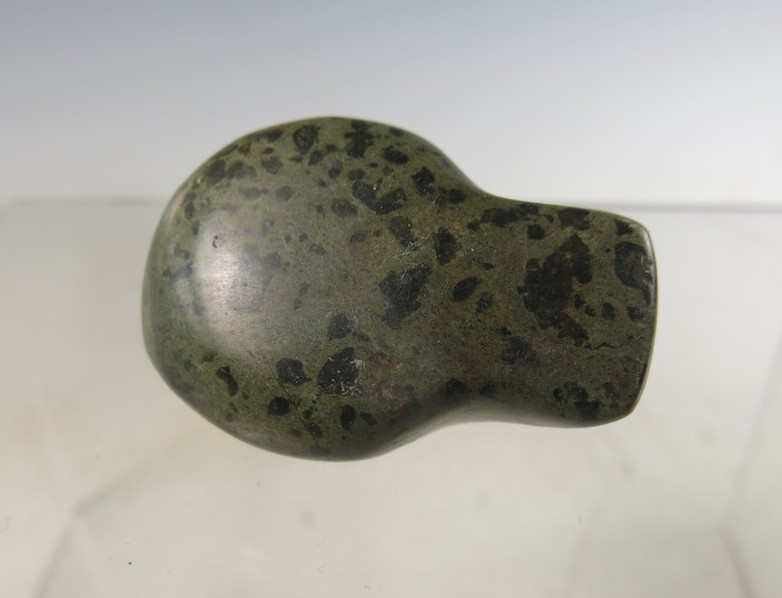
|
|

|
For currency conversion you can use this good service: https://www.xe.com/ucc/
To either ENQUIRE or BUY a piece click the button you will see with each item.
No impersonal 'shopping basket' system here. I prefer to do all this personally by email.
Extremely fine green diorite duck weight: probably on the qedet standard
50mm long
Weight = 52.7g
On the more standard scale of 1 shekel = 8.33g this finely made duck weight is very close to 1/10th of a Mesopotamian Mina or 6 1/3 shekels. But in general weights of this size are probably multiples of whole shekels and not fractional shekels, so one could call it a call this a six-shekel weight. But the shekel standard varied from time to time and place to place, even nearby cities may have had slightly different standards.
At 8.78 g. per shekel this weight could really fall in either the Mesopotamian shekel or the Egyptian qedet standard. The green diorite of which it is made suggest an Egyptian or Levantine origin. A qedet normally is a heavy Babylonian shekel standard (averages around 8.8 /8.9 g ). Neo-Babylonian weights tend as well to fall within that range, and are certainly heavier than earlier pieces (Whereas a Sumerian example tends to be around 8.2 g and a later Old Babylonian example would be a bit higher at around 8.4 g.) The weights of the qedet unit range from 8.81 g (fixed by Petrie as the lowest limit) to 10.11 g. This gives an average weight of 9.46 g.
I have discussed this weight with several collector dealers and the final view is that it is Neo-Babylonian and was actually carved ( in Egyptian diorite) on a qedet standard rather than a shekel standard - with possible origins in the Holyland and not in Babylonia itself.
Price: 1950.00 GBP
For currency conversion you can use this good service: https://www.xe.com/ucc/


Home | About This Site | Privacy Statement | Gallery | Testimonials | Guarantees
About Collectors' Resources pages | What's New
Search | Site Map | Contact Us


